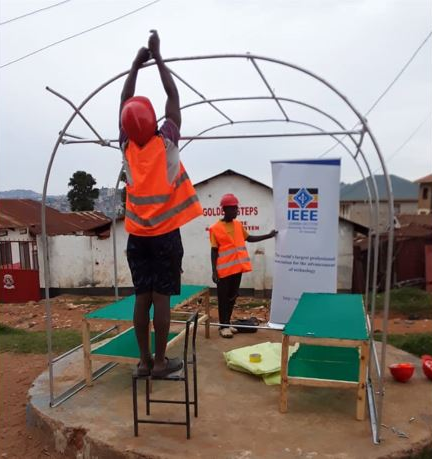Agriculture is a vital part of Uganda’s economy, which according to the team, is 80% subsistence farmers. When these farmers grow their crops, they often run into the issue of contamination due to flooding, in which the crops are too wet to consume. There is also the issue of aflatoxins that are poisonous to human bodies. To improve the health of the Ugandan people, and ensure they can consume safe food in an economical way, this project team of university students from Makerere University in Uganda collaborated with Prosper Community Organization to create a “solar dryer.” This device uses solar energy, from solar panels, to dry crops and ensure that they are safe for human consumption.
The team describes some of the technological benefits as climate friendly, improved food safety and hygiene in how it is guarded from the elements and insects, low drying temperature that retains the quality of the crops, and a reasonably low cost.
This project was made possible by a $3,942.41 grant from EPICS in IEEE.

